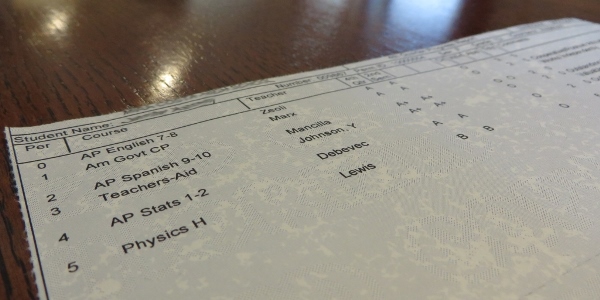By Jennifer Kennedy
Do you remember your elementary school report cards? They were more than just a column of letters with all of your hard work reduced down to a number – a number to be judged against that perfect 4.0. In those early years, you and your parents received feedback through grades and written commentary. Your parents also attended conferences with your teachers to help them truly understand how you were doing.
As you got older, though, chances are that feedback diminished. The really good teachers gave you open-ended assignments that were returned with constructive criticism along with your grade. However, there were a lot of teachers who just gave you a test; things were right or wrong, black or white, and the only thing you got back was a grade.
When I was looking at colleges, I found a handful didn’t give grades; they provided detailed feedback instead. I remember thinking, “How can a graduate school or employer judge an applicant on that?” But I also knew that there was value in that detailed, constructive feedback, and I wanted it.
I ended up at a college where I received both grades on my transcript at the end of the semester and constructive feedback throughout the year on analytical, hands-on, thought-provoking, and practical coursework. That, I believed, was the best of both worlds. On my resume, I could include my GPA, that number that my entire college career was supposed to be reduced to, so my academic performance could be judged against that of others. Importantly, though, I could also note my volunteer work and practical assignments such as communications work for local nonprofits. Additionally, in other parts of the job-seeking process, I could communicate with confidence that I had been adequately (or better) prepared for a career in the field of my choice – not because of the little number that was very close to a 4.0 – but because I had learned from extraordinary professors and received their feedback, support, and guidance the entire way.
Today, the field of education is so focused on raising standardized test scores that we are missing the point. There is so much more to education than a number telling us if we are right or wrong. How are we supposed to learn from a low score if we don’t know or understand what we got wrong? How does a multiple choice test allow me to develop critical thinking and problem solving skills? How is a test preparing us for life?
I see two major problems (among many others) with standardized test-driven education:
- Helpful feedback beyond the test score is often not provided.
- Tests don’t measure some of the most important things – a student’s ability to reason, depth of knowledge, thought processes, innovation, or passion, for example.
Tests are important evaluative tools, and they do serve a purpose. But education should not be reduced to simply filling in the bubbles on a multiple choice test. There is so much more to every student than a GPA or a percentile. We must find better ways to evaluate without stifling creativity, to give constructive feedback, and to make learning an engaging, productive process. We are asking a lot of teachers today, and hard as they try, they can’t do it all; they need help.
Even in the field of gifted education – where we appreciate and understand the gifted student’s ability and need to delve deeper, think more creatively, and express their knowledge differently – many programs identify gifted students based on a single test score. But a test score does not give us the full picture of a student, which is why IEA uses portfolio-based applications for identification and program qualification.
All kids are more than a test score, and all students deserve to learn. Let’s make that happen.
Like this post? Sign up for our email newsletter to receive more information and resources about gifted youth straight to your inbox.




